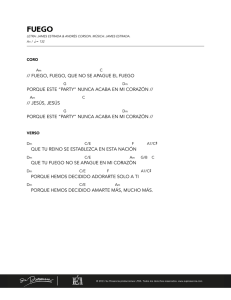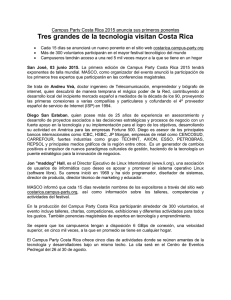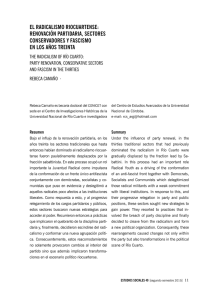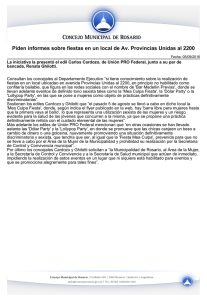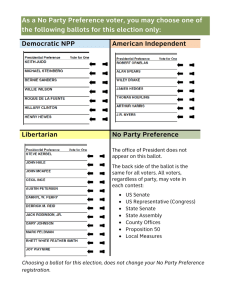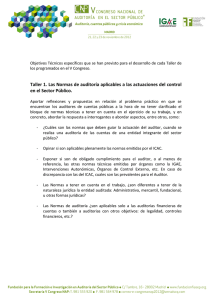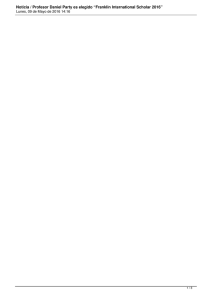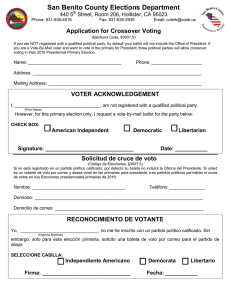jurisdiction of all Parties to the extent that such cooperation is
Anuncio
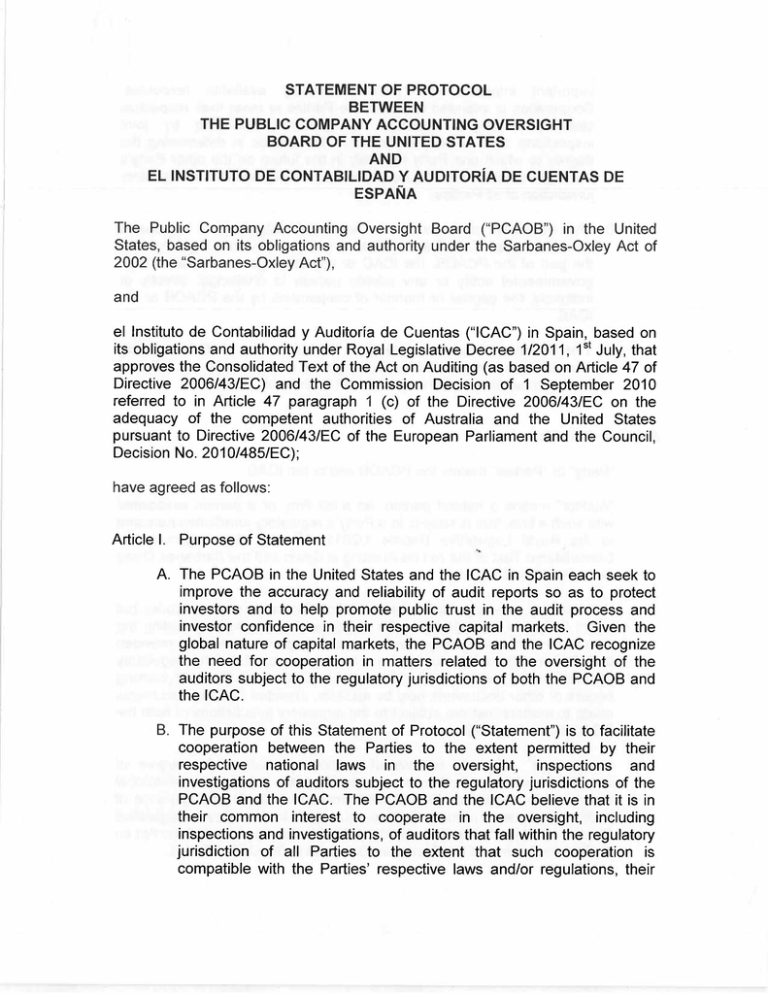
STATEMENT OF PROTOCOL BETWEEN THE PUBLIC COMPANY ACCOUNTING OVERSIGHT BOARD OF THE UNITED STATES AND EL INSTITUTO DE CONTABILIDAD Y AUDITORíA DE CUENTAS DE ESPAÑA The Public Company Accounting Oversight Board ("PCAOB") in the United States, based on its obligations and authority under the Sarbanes-Oxley Act of 2002 (the "Sarbanes-Oxley Act", and el Instituto de Contabilidad y Auditoría de Cuentas ("ICAG") in Spain, based on its obligations and authority under Royal Legislative Decree 1/2011, 1st July, that approves the Consolidated Text of the Act on Auditing (as based on Article 47 of Directive 2006/43/EG) and the Commission Decision of 1 September 2010 referred to in Article 47 paragraph 1 (c) of the Directive 2006/43/EC on the adequacy of the competent authorities of Australia and the United States pursuant to Directive 2006/43/EC of the European Parliament and the Council, Decision No. 201 0/485/EC); have agreed as follows: Article i. Purpose of Statement A. The PCAOB in the United States and the IGAC in Spain each seek to improve the accuracy and reliability of audit reports so as to protect investors and to help promote public trust in the audit process and investor confidence in their respective capital markets. Given the global nature of capital markets, the PCAOB and the ICAC recognize the need for cooperation in matters related to the oversight of the auditors subject to the regulatory jurisdictions of both the PCAOB and the ICAC. B. The purpose of this Statement of Protocol ("Statement") is to facilitate cooperation between the Parties to the extent permitted by their respective national laws in the oversight, inspections and investigations of auditors subject to the regulatory jurisdictions of the PCAOB and the ICAC. The PCAOB and the ICAC believe that it is in their common interest to cooperate in the oversight, including inspections and investigations, of auditors that fall within the regulatory jurisdiction of all Parties to the extent that such cooperation is compatible with the Parties' respective laws and/or regulations, their important interests and their reasonably available resources. Cooperation is intended to permit the Parties to meet their respective statutory oversight mandates. Cooperation, including by joint inspections, also is intended to assist the Parties in determining the degree to which one Party may rely in the future on the other Party's oversight activities with regard to auditors that fall within the regulatory jurisdiction of all Parties. C. This Statement does not create any legal obligations or supersede domestic laws. This Statement does not give rise to a legal right on the part of the PCAOB, the ICAC or any other governmental or nongovernmental entity or any private person to challenge, directly or indirectly, the degree or manner of cooperation by the PCAOB or the ICAC. D. This Statement does not prohibit the PCAOB or the ICAC from taking measures with regard to the oversight of auditors that are different from or in addition to the measures set forth in this Statement. Article 11. Definitions "Party" or "Parties" means the PCAOB and/or the ICAC. "Auditor" means a natural person, an audit firm, or a person associated with such a firm, that is subject to a Party's regulatory jurisdiction pursuant to the Royal Legislative Decree 1/2011, 1 st July, that approves the Consolidated Text of the Act on Auditing in Spain and the Sarbanes-Oxley Act in the United States. "Information" means public and non-public information which includes but is not limited to (1) reports on the outcome of inspections, including the results of firm-wide quality reviews and engagement reviews, provided that the reports relate to auditors that are subject to the regulatory jurisdictions of both the PCAOB and the ICAC, and (2) audit working papers or other documents held by auditors, provided that the documents relate to matters that are subject to the regulatory jurisdictions of both the PCAOB and the ICAC. "Inspections" refers to reviews of auditors to assess the degree of compliance of each auditor with applicable laws, rules and professional standards in connection with its performance of audits, the issuance of audit reports and related matters, pursuant to the Royal Legislative the Act on Decree 1/2011, 1st July, that approves the Consolidated Text of Auditing in Spain and the Sarbanes-Oxley Act in the United States. 2 "Investigations" refers to investigations undertaken by a Party of any act or practice, or omission to act, by auditors that may violate or may have violated applicable laws, rules or professional standards, pursuant to the Royal Legislative Decree 1/2011, 1 st July, that approves the Consolidated Text of the Act on Auditing in Spain and/or the Sarbanes-Oxley Act in the United States, respectively. Article ILL. Cooperation A. Scope of Cooperation 1. Cooperation may include one Party sharing with the other Party information, including information relating to auditors that fall within the regulatory jurisdiction of both the PCAOB and the ICAC. 1 Any information provided shall be used by the requesting Party as .1 permitted or required by their respective authorizing statutes - which include the Sarbanes-Oxley Act in the United States and the Royal Legislative Decree 1/2011, 1st July, that approves the Consolidated Text of the Act on Auditing in Spain - and any rules or regulations promulgated thereunder. 2. Cooperation may include one Party, consistent with its own laws, assisting the other Party in an inspection or an investigation by performing activities that may include but are not limited to (i) faciliating access to information, and/or, if requested, (ii) reviewing audit work papers and other documents; interviewing auditor personnel; reviewing an auditor's quality control system and/or performing other testing of the audit, supervisory and quality control procedures of an auditor.2 3. Cooperation in the context of an inspection or investigation does not cover a request for assistance or information to the extent that it involves a Party obtaining on behalf of the other Party information 1 The ICAC has informed the PCAOB that according to article 43.1 second paragraph of the consolidated text of the Act on Auditing "the Accounting and Auditing Institute may, when the request is duly justified by the competent authorities in a third country, release to them the working papers and other documents in the possession of the auditors or audit firms relative to the audits of companies domiciled in Spain that have issued securities in the third country or companies that are part of a group that publishes annual accounts in the said third country." 2 The ICAC has informed the PCAOB that Article 103.1 of the Regulation that develops the consolidated text of the Law on Auditing only permits the personnel of any competent third county audit oversight authority to participate in an inspection of a Spanish auditor or audit firm together with personnel from the ICAC. 3 which the requesting Party is not entitled to under its own laws or regulations. 4. The scope of cooperation may vary over time and with each inspection or investigation. 5. Cooperation also may include the exchange of each Party's respective inspection guides. 6. The Parties may at the request of either Party consult on issues related to the matters covered by this Statement, and otherwise exchange views and share experiences and knowledge gained in the discharge of their respective duties to the extent consistent with their respective laws and regulations. B. Requests for information 1. Each Party may provide the other Party with information upon request. 2. Requests shall be made in writing (including e-mail) and addressed to an appropriate contact person of the requested Party. 3. The requesting Party shall specify the following, to the extent appropriate: a) The information requested; b) The reasons why the information is needed and, if applicable, the relevant provisions that may have been violated; c) The purposes for which the information will be used. d) An indication of the date by which the information is needed; and e) To the best of the knowledge of the requesting Party, an indication of whether the information requested might be subject to further use or transfer under paragraphs C and D of Article V. 4. Barring exceptional circumstances, requests for non-public information from an auditor in the other Party's jurisdiction shall be sent to the other Party, which will pass on the request (in the form provided by the requesting Party) to the auditor.3 3 The ICAC has informed the PCAOB that according to article 43.3 of the Consolidated Text of the Act on Auditing in Spain, approved by Royal Legislative Decree 1/2011, 1 st July, audit working papers and other 4 5. Subject to paragraph B. 6 of this Article, the requested Party may refuse to act on a request where, for example, a) It concludes that the request is not in accordance with this Statement; b) Acceding to the request would contravene the laws, rules or regulations of the requested Party's country; c) It concludes that it would be contrary to the public interest of the requested Party's country for assistance to be given; d) The provision of information would adversely affect the sovereignty, security or public order of the requested Party's country; or e) Judicial proceedings have already been initiated in respect of the same actions and against the same persons before the authorities of the country of the requested Party. I 6. If a Party denies a request in part or in full or withholds any requested information (either on its own initiative or at the request of an auditor), the requested Party shall inform the requesting Party of the nature of the information being withheld and the reason(s) for its deniaL. In the event a Party or an auditor refuses to provide requested information, the Parties shall consult to determine if there are alternative ways to meet the purpose of the requesting Party. The Parties are aware that if the information is not provided, and the requesting Party determines that it cannot satisfy its regulatory obligations without the requested information, the requesting Party may take certain actions as allowed by its domestic laws, rules and regulations against the relevant auditor(s) for refusing to provide the requested information. 7. In cases where the information requested may be maintained by, or available to, another authority within the country of the requested Party, the requested Party shall consider whether it can obtain and provide to the other Party the information requested, to the extent possible in light of available resources and as permitted by the laws, rules or regulations in their respective countries. documents related to certain audits requested by the PCAOB can only be transferred to the PCAOB by the ICAC or, in exceptional cases, directly to the PCAOB by the auditor if approved by the ICAC, provided that: a) Investigations have been initiated by the requesting Party; b) The requesting Party informs in advance the other Party of each direct request for information indicating the reason thereof; and c) The transfer does not conflict with the obligations with which auditors are required to comply in relation to the oversight of their home competent authority 5 8. While the Parties may transfer information received in ,the course of cooperation to other entities in accordance with Sections C and D of Article V, the Parties themselves may use non-public information, including unsolicited information, received in the course of cooperation as permitted or required by their respective authorizing laws, i.e., for the purpose of the public oversight, inspection and investigation of auditors. If the requesting Party intends to use information received in the course of cooperating for any purpose other than that stated in the original request under Article III.B.3.(b), it must obtain the prior written only consent of the requested Party on a case by case basis. If the requested Party consents, it may subject it to conditions. The provisions of this paragraph apply to information received under this Statement which is reflected in documents created by either Party. 9. Any document or other material provided in response to a request under this Statement and any copies thereof shall be returned on request to the extent permitted by applicable laws, rules or regulations. 10. A Party may take copies of working papers or other documents held by an auditor in the other Party's jurisdiction to its own jurisdiction as necessary to comply with its documentation requirements, to support its inspection findings or for purposes of an investigation. The requested Party will identify the working papers or other documents copied for the requesting Party before transferring them. The arrangements established between the Parties with respect to the transfer of personal data in accordance with Article Vi must be observed. C. Joint Inspections 1. If consistent with each Party's respective national legislation and in order to assist the Parties in determining the degree to which one Party may rely in the future on the other Party's inspections of auditors that fall within the regulatory jurisdiction of both Parties, the Parties may conduct joint inspections. Each Party may decline to carry out inspections jointly. 2. Before a joint inspection is carried out, the Parties shall endeavor to reach a consensus on a work plan for the joint inspection, including, in general, the steps and procedures to be performed during the joint inspection, including the audit engagements to be reviewed and the allocation of work between the staff of the PCAOB and the staff of the ICAC. 6 3. For each joint inspection, the Party in whose jurisdiction the joint inspection is conducted may choose to lead the joint inspection, meaning that the Party will manage communications with the auditors I and organize the logistics of the joint inspections. In any case, the Party in whose jurisdiction the joint inspection is conducted shall receive all audit working papers and other documents from the auditors in the first instance before transferring them to the other Party, except i I I I .1 I I under exceptional circumstances, as indicated in Article III.B.4., or if the Party in whose jurisdiction the joint inspection is being conducted elects otherwise. 4. While each Party is responsible for its own inspection procedures, as well as its own findings and conclusions that result from the joint inspection, the Parties shall consult with each other about their findings and conclusions during inspection field work and later as requested by either Party. The Parties shall also inform each other about possible findings to be provided to the inspected audit firm. 5. The requesting Party bears the costs of translation of the working papers or other documents provided under this Statement. Article IV. Confidentialiy With respect to any non-public information provided to another Party, the Parties agree that: A. The requesting Party has established and will maintain such safeguards as are necessary and appropriate to protect the confidentiality of the information, including storing the information in a secure location. B. The requesting Party has provided to the other Party a description of its applicable information systems and controls and a description of the laws and regulations of the government of the requesting Party that are relevant to information access. C. The requesting Party will inform the other Party if the safeguards, information systems, controls, laws or regulations referenced in paragraphs A and B above change in a way that would weaken the protection for the information provided by the other Party. D. Except as provided in Article V of this Statement, each Party shall keep confidential all non-public information received in the course of cooperating. This includes information received under this Statement that is reflected in documents created by either Party. The obligation of confidentiality shall apply to all persons who are or have been 7 employed by the Parties, involved in the governance of the Parties or otherwise associated with the Parties. E. In addition, only individuals and entities that are independent of the auditing profession will have access to the non-public information and/or documents provided; "independent of the auditing profession" means that the individual or entity is not a practicing auditor, affiliated with an auditor or a member of the governing body or staff of a professional organization for auditors or accountants. Article V. Exceptions to Confidentiality A. A Party may issue public inspection reports as permitted or required by the law of that Party's jurisdiction, including reports that identify the auditor inspected and the inspection results, but do not identify the names of the clients reviewed. B. A Party may publicly announce sanctions imposed upon auditors as permitted or required by the law of that Party's jurisdiction. Once having publicly announced any sanctions imposed on an auditor that is located in the other Party's jurisdiction and subject to the other Party's authority, the Party shall give notice of the publication to the other Party. C. The PCAOB may share with the U.S. Securities and Exchange Commission ("SEC") non-public information that the PCAOB has obtained from the ICAC, or from an auditor with the approval of the ICAC, in the course of cooperating under this Statement as follows: 1. Upon the PCAOB's own initiative, any information obtained in connection with the PCAOB's audit regulatory functions, i.e., auditor oversight, quality assurance (including inspections), and investigations and discipline of auditors, that it considers relevant to (i) the SEC's oversight of auditors, or (ii) the SEC's oversight over the PCAOB. 2. Upon request by the SEC, information shared for purposes of: (i) the SEC's oversight of auditors or (ii) the SEC's oversight over the PCAOB; and 3. For information not available to the SEC under (1) or (2) above, the PCAOB shall follow the procedures set forth below in paragraph D of this Article V. 8 D. Except as set out in paragraph C (1) and (2) of this Article V above, a Party that intends to transfer to a third party any non-public information received in the course of cooperation shall request the prior written consent of the Party which provided the information. 1. The Party that intends to transfer this information shall indicate the reasons and the purposes for which the information is to be transferred. 2. The PCAOB may share such information only with those entities identified in section 1 05(b )(5)(B) of the Sarbanes-Oxley Act, which states that these entities shall maintain such information as confidential and privileged. 3. The ICAC may share such information only with the Spanish law enforcement entities as allowed by Article 17 of the Law 6/1985 of 1 st July on Judicial Power, when required to do so by judicial order. In such cases, the ICAC is obliged to notify the requesting law enforcement entity that the information shared has confidential status. 4. A Party shall respond within ten days upon receiving notice from the other Party that it seeks to transfer information to a third party. The Party receiving such notice shall endeavor to provide its consent in response to requests to the transfer of information to third parties, if its applicable law does not preclude it from providing consent. Where the Party receiving notice concludes that it cannot give consent, it shall set out its reasons to the other Party. The Party seeking to transfer the information shall consider the other Party's objections and will consult further with the other Party before deciding whether it should transfer the information, despite the objections of the other Party. Article Vi. Personal data. The transfer of personal data pursuant to this Statement is subject to the establishment of appropriate arrangements on the transfer of personal data. 9 Article ViI. Entry into force, Expiration and Termination A. This Statement comes into force from the date of signature. It will expire on 31 July, 2013. .1 .1 B. The Parties may consult and revise the terms of this Statement in the event of a substantial change in the laws, regulations, or practices affecting the operation of this Statement. C. This Statement may be terminated by either Party by written notice to the other Party at any time. After termination of this Statement, the Parties shall continue to maintain as confidential, consistent with Articles IV and V, any information provided under this Statement. Date: '1 lV I" 2.01 V- 71 lliwJ Ana María Martínez-Pina La Presidenta Instituto de Contabilidad y Auditoría de Cuentas Date: Ib r ¡ Lw 2(J( L i 10 DECLARACIÓN DE PROTOCOLO ENTRE THE PUBLIC COMPANY ACCOUNTING OVERSIGHT BOARD DE LOS ESTADOS UNIDOS Y EL INSTITUTO DE CONTABILIDAD Y AUDITORíA DE CUENTAS DE ESPAÑA The Public Company Accounting Oversight Board de los Estados Unidos (en 10 sucesivo "PCAOB"), vistas sus obligaciones y facultades con arreglo a la Ley Sarbanes-Oxley de 2002 (en 10 sucesivo "Ley Sarbanes-Oxley"), y el Instituto de Contabilidad y Auditoria de Cuentas (en 10 sucesivo "ICAC") de España, en virtud de sus obligaciones y facultades conforme al Real Decreto Legislativo 1/2011, de 1 de julio, por el que se aprueba el texto refundido de la Ley de Auditoria de Cuentas (sobre la base del articulo 47 de la Directiva 2006/43/CE) y la Decisión de la Comisión de 1 de septiembre de 2010, a la que se refiere en articulo 47, apartado 1, letra c), de la Directiva 2006/43/CE, sobre la adecuación de las autoridades competentes de Australia y los Estados Unidos de América con arreglo a la Directiva 2006/43/CE del Parlamento Europeo y del Consejo, Decisión nO 201 0/485/CE); han acordado 10 siguiente: Articulo i. Finalidad de la Declaración A. EI PCAOB en los Estados Unidos y el ICAC de España pretenden mejorar la precisión y fiabilidad de los informes de auditoria a fin de proteger a los inversores y ayudar a reforzar la confianza del público en el proceso de auditoria y la confianza de los inversores en sus respectivos mercados de capitales. Dada la naturaleza global de los mercados de capitales, el PCAOB y el ICAC reconocen la necesidad de cooperar en materias relacionadas con la supervisión de los auditores cuya regulación sea competencia tanto del PCAOB como del ICAC. B. La finalidad de la presente Declaración de Protocolo (en 10 sucesivo "Declaración") es facilitar la cooperación entre las Partes en la medida permitida por sus respectivas legislaciones nacionales en materia de supervisión, inspecciones e investigaciones de auditores cuya regulación sea competencia tanto del PCAOB como del ICAC. EI PCAOB Y el ICAC creen que redunda en su interés común cooperar en la supervisión, inclusive mediante inspecciones e investigaciones, de los auditores cuya regulación es competencia de todas las Partes, siempre que tal cooperación sea compatible con sus respectivas legislaciones y/o reglamentaciones, la relevancia de sus intereses y sus recursos se encuentren razonablemente disponibles al efecto. La cooperación tiene por objeto permitir a las Partes cumplir sus respectivos mandatos de supervisión reglamentarios. La cooperación, incluidas las inspecciones conjuntas, también pretende ayudar a las Partes a determinar el grade en el que una Parte pueda confiar en el futuro en las actividades de supervisión de la otra Parte en 10 que respecta a los auditores cuya regulación sea competencia de todas las Partes. C. La presente Declaración no establece ninguna obligación jurídica ni sustituirá a la legislación nacional. La presente Declaración no generará ningún derecho legal por parte del PCAOB, el ICAC u otra entidad gubernamental 0 no gubernamental 0 de cualquier persona privada a cuestionar, directa 0 indirectamente, el grade 0 la forma de cooperación entre el PCAOB y el ICAC. D. La presente Declaración no impide al PCAOB 0 al ICAC tomar medidas relativas a la supervisión de auditores que sean diferentes de las medidas previstas en la presente Declaración 0 adicionales a las mismas. Articulo II. Definiciones Por "Parte" 0 "Partes" se entenderá el PCAOB y/o el ICAC. Por "Auditor" se entenderá una persona fisica, una sociedad de auditoría o una persona asociada a ella, sometida a la jurisdicción de una Parte conforme al Real Decreto Legislativo 1/2011, de 1 de julio, por el que se aprueba el texto refundido de la Ley de Auditoría de Cuentas en España y la Ley Sarbanes-Oxley en los Estados Unidos. Por "Información" se entenderá toda información pública y no pública que incluya, entre otras cosas, (1) informes sobre los resultados de inspecciones, incluidos los resultados de controles de calidad del conjunto de una empresa y revisiones de encargos lIevados a cabo, siempre que los informes estén relacionados con auditores cuya regulación sea competencia tanto del PCAOB como del ICAC, y (2) los papeles de trabajo de auditoria u otros documentos que obren en poder de auditores, siempre que tengan que ver con cuestiones cuya regulación sea competencia tanto del PCAOB como el ICAC. 2 Por "Inspecciones" se entenderán revisiones a los auditores para evaluar el grade de cumplimiento por parte de cada auditor de la legislación, las reg las y las normas profesionales aplicables en relación con la realización de auditorías, la emisión de informes de auditoría y cuestiones afines, conforme al Real Decreto Legislativo 1/2011, de 1 de julio, por el que se aprueba el texto refundido de la Ley de Auditoría de Cuentas en España y la Ley Sarbanes-Oxley en los Estados Unidos. Por "Investigaciones" se entenderán investigaciones emprendidas por una Parte de cualquier acto 0 práctica u omisión de actuar por parte de auditores que pueda incumplir 0 pudiera haber incumplido la legislación 0 las reglas 0 normas profesionales aplicables conforme al Real Decreto Legislativo 1/2011, de 1 de julio, por el que se aprueba el texto refundido de la Ley de Auditoría de Cuentas en España y/o la Ley Sarbanes-Oxley en los Estados Unidos, respectivamente Articulo IIi. Cooperación A. Alcance de la cooperación 1. La cooperación puede incluir que una Parte comparta con la otra Parte información, incluida información relativa a auditores cuya regulación sea competencia tanto del PCAOB como del ICAC. 1 Cualquier información facilitada será utilizada por la Parte solicitante según permitan 0 exijan sus respectivos leyes de creación -que incluyen la Ley Sarbanes-Oxley en los Estados Unidos y el Real Decreto Legislativo 1/2011, de 1 de julio, por el que se aprueba el texto refundido de la Ley de Auditoría de Cuentas en España- y las normas 0 reglamentaciones promulgadas en virtud de los mismos. 2. La cooperación puede implicar que una Parte, de acuerdo con su legislación, ayude a la otra Parte en una inspección 0 una investigación lIevando a cabo actividades que pueden incluir, entre otras cosas: (i) facilitar acceso a la información, y/o, si se solicita, (ii) revisar los papeles de trabajo de auditoría y otros documentos; entrevistar al personal del auditor; revisar el sistema de control de calidad del auditor y/o lIevar a cabo otra comprobación de los i EI ICAC ha informado al PCAOB que de conformidad con el artículo 43.1 segundo párrafo del texto refundido de la Ley de Auditoría de Cuentas "el Instituto de Contabilidad y Auditoría de Cuentas podrá permitir, previa justificación de la petición por la autoridad competente de un tercer país, el envío a dicha autoridad competente de papeles de trabajo u otros documentos que obren en poder de aquellos auditores de cuentas, así como de las sociedades y demás entidades de auditoría que auditen las cuentas de sociedades con domiCilio social en España y que hayan emitido valores en ese tercer pãís-ü -de sociedades que formen parte de un grupo que publique las cuentas anuales consolidadas en dicho tercer país." 3 procedimientos de auditoria, supervisión y control de calidad de un auditor.2 3. La cooperación en el contexto de una inspección 0 investigación no incluye una solicitud de ayuda 0 información en la medida en que implique que una Parte obtenga en nombre de la otra Parte información a la que la Parte solicitante no tiene derecho en virtud de su normativa legal vigente. 4. EI alcance de la cooperación puede variar con el tiempo y con cada inspección 0 investigación. 5. La cooperación también puede incluir el intercambio de las respectivas guias de inspección de las Partes. 6. Las Partes pueden, a petición de una de elias, consultar sobre cuestiones relacionadas con las materias contempladas en esta Declaración, y de otro modo intercambiar puntos de vista y compartir experiencias y conocimientos obtenidos en el desempeño de sus respectivas funciones, siempre de conformidad con su normativa legal vigente. B. Solicitudes de información 1. Cada Parte podrá proporcionar a la otra Parte la información solicitada. 2. Las solicitudes deberán presentarse por escrito (incluido el correo electrónico) y dirigirse a la persona de contacto adecuada de la Parte requerida. 3. La Parte solicitante especificará 10 siguiente, en la medida en que proceda: a) La información solicitada; b) Los motivos por los que se necesita la información y, en su caso, las disposiciones relevantes que puedan haber sido incumplidas; c) Los fines para los que se utilizará la información; d) Una indicación de la fecha en la cual se necesita la información; y 2 "EI ICAC ha informado al PCAOB de que el artículo 103.1 del Reglamento que desarrolla el texto refundido de la Ley de Auditoría de çuentas solo permite al personal de la ~-.torid~d ~ompelente de un tercer país participar en una actuación de control de un auditor 0 de una sociedad de auditoría española junto con el personal del Instituto de Contabilidad y Auditoría de Cuentas. 4 e) Según el mejor conocimiento de la Parte solicitante, una indicación de si la información solicitada puede estar sujeta a una ulterior utilzación 0 transferencia conforme a los apartados C y D del articulo V. 4. Salvo circunstancias excepcionales, las solicitudes de información no pública de un auditor de la jurisdicción de la otra Parte se enviarán a la otra Parte, que transmitirá la solicitud (en la forma prevista por la Parte solicitante) al auditor.3 5. Sin perjuicio de 10 dispuesto en el apartado B. 6 de este articulo, la Parte requerida podrá negarse a dar curso a una solicitud, por ejemplo, a) si lIega a la conclusión de que la solicitud contraviene la presente Declaración; b) si aceptar la solicitud supusiera contravenir las leyes, reglas 0 normas del pais de la Parte requerida; c) si lIega a la conclusión de que prestar ayuda seria contrario al interés público del pais de la Parte requerida; d) si el suministro de información afectara negativamente a la soberania, la seguridad 0 el orden público del pais de la Parte requerida; 0 e) si ya se hubiesen iniciado procedimientos judiciales sobre los mismos hechos y contra las mismas personas ante las autoridades del pais de la Parte requerida. 6. Si una Parte rechaza parcial 0 totalmente una solicitud, 0 retiene la información solicitada (ya sea por iniciativa propia 0 a petición de un auditor), la Parte requerida informará a la Parte solicitante sobre la naturaleza de la información que se retiene y el(los) motivo(s) de su denegación. En caso de que una Parte 0 un auditor se niegue a facilitar la información solicitada, las Partes se consultarán para determinar si hay maneras alternativas de cumplir los propósitos de la Parte solicitante. Las Partes saben que si no se facilita la información, y la Parte solicitante determina que no puede satisfacer sus obligaciones regulatorias sin la información solicitada, la Parte solicitante puede emprender determinadas acciones permitidas por su 3 EI ¡CAC ha informado al PCAOB de que conforme al artículo 43.3 del texto refundido de la Ley de Auditoría de Cuentas en España aprueba por el Real Decreto Legislativo i /20 I i, de I de julio, los papeles de trabajo de auditoría y otros documentos relativos a ciertos auditorías solicitados por eI PCAOB solo pueden transferirse al PCAOB por el ¡CAC 0, en casos excepcionales, directamente al PCAOB por el auditor si ha sido aprobado por eIICAC, siempre que: a) la Parte solicitante haya iniciado investigaciones; b) la Parte solicitante informe de antemano a la otra Parte de cada petición de información directa, indicando el motivo de la misma; y cy la transferencia no perjudique las actuaciones a làs que esMn sujetos los auditores de cuentas en relación con la supervisión de la autoridad competente de su país. 5 normativa legal vigente contra el (los) correspondientes auditor(es) por negarse a facilitar la información solicitada. 7. En los casos en que la información solicitada pueda hallarse bajo la custodia de otra autoridad del pais de la Parte requerida 0 estar a disposición de esa otra autoridad, la Parte requerida deberá considerar si puede obtener y facilitar a la otra Parte la información solicitada, en la medida en que sea posible a la luz de los recursos disponibles y según 10 permita la normativa legal vigente de sus respectivos paises. 8. Si bien las Partes pueden transferir a otras entidades información recibida en el marco de la cooperación conforme a las secciones C y D del articulo V, las Partes podrán utilizar información no pública, incluida información no solicitada, recibida en el marco de la cooperación únicamente cuando asi 10 permitan 0 exijan sus respectivas leyes de creación, es decir, a efectos de la supervisión, .1 i inspección e investigación públicas de los auditores. Si la Parte solicitante quiere utilizar la información recibida en el marco de la cooperación para una finalidad distinta de la indicada en la solicitud original con arreglo al articulo III.B.3(b), deberá obtener, en cada caso, el previa consentimiento por escrito de la Parte requerida. En caso de aceptar, la Parte requerida podrá imponer condiciones. Las disposiciones del presente apartado se aplican a la información recibida en virtud de la presente Declaración que esté reflejada en documentos creados por cualquiera de las Partes. 9. Cualquier documento u otros materiales facilitados en respuesta a una solicitud en virtud de la presente Declaración y las copias del mismo se devolverán a petición en la medida que 10 permita la normativa legal vigente. 10. Una Parte podrá lIevar copias de papeles de trabajo u otros documentos que obren en poder de un auditor en la jurisdicción de la otra Parte a su propia jurisdicción si resulta necesario para cumplir sus requisitos de documentación, apoyar sus resultados de la inspección 0 a efectos de una investigación. La Parte requerida identificará los papeles de trabajo u otros documentos copiados para la Parte solicitante antes de enviarlos. Es precise observar los acuerdos establecidos entre las Partes en relación con la transferencia de datos personales de conformidad con el articulo Vi. C. Inspecciones conjuntas 1. Las Partes podrán realizar inspecciones conjuntas si ello es compatible con la legislación nacional de cada una de elias y para 6 ayudarles a determinar el grade en el que una Parte pueda confiar en el futuro en las inspecciones a auditores realizadas por la otra Parte y cuya regulación sea competencia de ambas Partes. Cada Parte podrá negarse a realizar inspecciones conjuntas. 2. Antes de realizar una inspección conjunta, las Partes tratarán de alcanzar un consenso sobre un plan de trabajo para la inspección conjunta, incluidas, en general, las medidas y procedimientos se realizará durante la inspección conjunta, incluyendo los encargos de auditoria que deben revisarse y la asignación de tareas entre el personal del PCAOB y el personal del ICAC. 3. Para cada inspección conjunta, la Parte en cuya jurisdicción se realice la inspección conjunta podrá optar por dirigir la inspección conjunta, 10 que significa que la Parte gestionará las comunicaciones con los auditores y organizará la logistica de las inspecciones conjuntas. En cualquier caso, la Parte en cuya jurisdicción se realice la inspección conjunta recibirá todos los papeles de trabajo de auditoria y otros documentos de los auditores antes de enviarlos a la otra Parte, salvo en las circunstancias excepcionales indicadas en el articulo III.B.4 0 en el caso de que la Parte en cuya jurisdicción vaya a realizarse la inspección conjunta decida hacerlo de otra manera. 4. Si bien cada Parte es responsable de sus procedimientos de inspección, asi como de sus propios hallazgos y conclusiones derivados de la inspección conjunta, las Partes se consultarán sobre los resultados y conclusiones durante el trabajo de campo de la inspección y después cuando asi 10 solicite cualquiera de las Partes. Las Partes también se informarán sobre los posibles hallazgos a facilitar a la sociedad de auditoria inspeccionada. 5. La Parte solicitante asumirá los gastos de traducción de los papeles de trabajo u otros documentos previstos en la presente Declaración. Articulo iV. Confidencialidad En relación con cualquier información no pública facilitada a la otra Parte, las Partes acuerdan 10 siguiente: A. La Parte solicitante establecerá y mantendrá las salvaguardas necesarias y oportunas para proteger la confidencialidad de la información, incluido el almacenamiento de la información en una ubicación segura. 7 B. La Parte solicitante ha facilitado a la otra Parte una descripción de sus sistemas de información y controles aplicables, asi como una descripción de la normativa legal vigente en el Estado de la Parte solicitante que es relevante para el acceso a la información. C. La Parte solicitante informará a la otra Parte si las salvaguardas, sistemas de información, controles y la normativa legal vigente a que hacen referencia los apartados A y B cambian de un modo que debilitaran la protección de la información faciliada por la otra Parte. D. Excepto en 10 previsto en el Articulo V de la presente Declaración, cada Parte mantendrá en secreto la información no pública recibida en el marco de la cooperación. Ello incluye la información recibida en virtud de la presente Declaración, reflejada en documentos creados por cada una de las Partes. La obligación de confidencialidad se aplicará a todas las personas que trabajen 0 hayan trabajado para las Partes, estén 0 hayan estado implicadas en la gobernanza de las Partes 0 asociadas de otro modo con las Partes. E. Además, solo las personas y entidades que sean independientes de la actividad de auditoria tendrán acceso a información y/o documentos no públicos facilitados; "independientes de la actividad de auditoria" significa que la persona 0 entidad no es un auditor ejerciente, no está afiliada como auditor ni es miembro de un órgano de gobierno 0 del personal de una organización profesional de auditores 0 contables. Articulo V. Excepciones a la confidencialidad A. Una Parte podrá publicar informes de inspección públicos según 10 permita 0 10 exija la legislación de la jurisdicción de esa Parte, incluidos los informes que identifiquen al auditor inspeccionado y los resultados de la inspección, aunque sin identificar los nombres de los c1ientes revisados. B. Una Parte podrá anunciar públicamente sanciones impuestas a los auditores según 10 permitido 0 exigido por la legislación de la jurisdicción de dicha Parte. Una vez anunciadas públicamente las sanciones impuestas a un auditor que está establecido en la jurisdicción de la otra Parte, y bajo la autoridad de la otra Parte, la Parte notificará la publicación a la otra Parte. C. EI PCAOB podrá compartir con la Comisión de Valores y Boisa estadounidense ("SEC") información no pública que el PCAOB haya obtenido del ICAC 0 de un auditor con el consentimiento del ICAC, en 8 el marco de la cooperación en virtud de la presente Declaración, de la siguiente manera: 1. Por iniciativa propia del PCAOB, cualquier información obtenida en relación con las facultades reguladoras en materia de auditoria del PCAOB, es decir, supervisión de auditores, control de calidad (incluidas las inspecciones), e investigaciones y disciplina de auditores, que considere relevante para (i) la supervisión de los auditores por parte de la SEC, 0 (ii) la supervisión del PCAOB por parte de la SEC. partida para: (i) la supervisión de los auditores por parte de la SEC, 0 (ii) la 2. A petición de la SEC, información com supervisión del PCAOB por parte de la SEC; y 3. Con respecto a la información que no está a disposición de la SEC en virtud de los apartados (1) 0 (2), el PCAOB seguirá los procedimientos establecidos en el apartado D del presente articulo V. D. Salvo 10 establecido en el apartado C (1) Y (2) del presente articulo V, una Parte que quiera transferir a un tercero información no pública recibida en el marco de la cooperación deberá solicitar el consentimiento previa por escrito de la Parte que facilitó la información. 1. La Parte que desee transferir esta información indicará los motivos y fines por los que ha de transferirse la información. 2. EI PCAOB solo podrá compartir esta información con las entidades identificadas en el articulo 1 05(b )(5)(B) de la Ley Sarbanes-Oxley, que establece que estas entidades tratarán la información de forma confidencial y privilegiada. 3. EI ICAC solo podrá com partir esta información con los órganos judiciales españoles, tal como establece el articulo 17 de la Ley Orgánica 6/1985, de 1 de julio, del Poder Judicial, cuando asi se 10 exija una orden judiciaL. En tales casos, el ICAC está obligado a partida notificar al órgano judicial solicitante que la información com tiene carácter confidencial. 4. Una Parte responderá en el plazo de diez dias desde la recepción de la notificación de la otra Parte de que desea transferir información a un tercero. La Parte que reciba tal notificación procurará dar su consentimiento en respuesta a las peticiones de transferencia de información a terceros, si su normativa legal vigente no Ie impide dar dicho consentimiento. Si la Parte que recibe la notificación concluye que no puede dar su consentimiento, expondrá los motivos a la otra Parte. La Parte que quiera transferir 9 la información estudiará las objeciones de la otra Parte y consultará con ella antes de decidir si debe transferir la información a pesar de las objeciones de la otra Parte. Articulo Vi. Datos personales. La transferencia de datos personales en virtud de la presente Declaración está supeditada al establecimiento de acuerdos adecuados sobre la transferencia de datos personales. Artículo ViI. Entrada en vigor, vencimiento y rescisión A. La presente Declaración entrará en vigor a partir de la fecha de la firma. Expirará el 31 de julio de 2013. B. Las Partes podrán consultar y revisar las condiciones de la presente Declaración en caso de producirse cambios sustanciales en las leyes, reglamentos 0 prácticas que afecten a la aplicación de la Declaración. ida por cualquiera de las rita a la otra Parte. C. La presente Declaración podrá ser rescind Partes en todo momenta mediante notificación esc Una vez rescindida la presente Declaración, las Partes seguirán manteniendo la confidencialidad, conforme a los articulos IV y V, de toda información facilitada en el marco de la presente Declaración. ¡ I Jame Chai Pub!" Company Accoun . Over ight Board Fecha: ~ july 2.0/1. ~, Ana Maria Martinez-Pina La Presidenta Instituto de Contabilidad y Auditoria de Cuentas Fecha: i (0 tWo WCZ- 10

